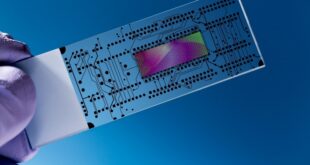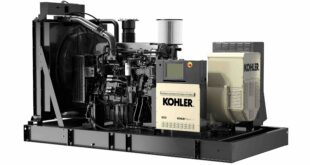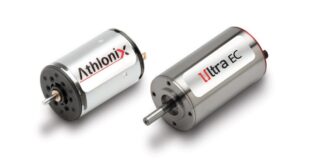Industry 4.0 is not only revolutionising the way manufacturers operate. It is also transforming how Supervisory Control and Data Acquisition (SCADA) systems work and what we can expect from them.
As a plant and process management tool SCADA has become the industry standard and its market is skyrocketing.
Analysts expect it to reach £11*-30** billion by 2024.
“This growth is mostly due an increasing level of market awareness for what SCADA can do”, says Paolo Fiorani, founding partner of leading European SCADA manufacturer Progea. “Its core advantage is that it can deliver significant time and cost savings during production, however additional benefits have also begun to appear, as SCADA systems evolve. Unlike rigid vendor-specific early SCADA software products, current systems are more open, based on general use software platforms, and so the hardware is also more interchangeable, allowing end users to create a bespoke solution for their needs.”
However, big changes are ahead to keep SCADA up to date in Smart Factories. Cyber-physical systems, the (industrial) Internet of Things (IoT or IIoT) and cloud computing have the potential to further improve process automation and SCADA systems by turning existing machinery into smart, connected systems.
In fact, the combination of these new technologies with SCADA is effectively a gateway to Industry 4.0.
Speaking of Progea, Fiorani points out that the rules prescribed in Industry 4.0 are already being accounted for: “Back in 2013, we looked at what digital transformation could mean for our users. Therefore, we planned the technological evolution of the company, in view of the challenges of future process automation. To provide state-of-the-art solutions and meet future users and market demands, we developed the modular Movicon.NExT software platform.”
Fiorani and his team strongly believes that IoT should not be perceived as an enemy that will replace SCADA, but rather as a tool to improve process automation.
That’s why “the main features of Movicon.NExT are scalability and modularity, which make the product suitable for industries of different sizes. Movicon.NExT is suitable for client/server applications for medium and large systems, as well as for smaller and simpler applications for ‘micro’ environments,” he says, but the use of new technologies doesn’t stop here. “The system also comes with a HoloLens app for augmented reality and graphics that are superior in quality to most other flat SCADA graphics.”
The R&D department also considered the rising importance of the Cloud when developing their new SCADA solution.
The Movicon.NExT platform was designed from the outset to connect to a cloud database.
The historical data can be accessed and run both locally or on a Microsoft Azure hosted SQL Database for example. This implementation ensures interoperability and information transparency. The platform was designed to maximise its ease of use: so, the system remains the same, independently of whether the operator uses the local database or a cloud service.”
Paolo Fiorani continues: “An additional cloud implementation is the Cloud Progea – Databoom platform, designed to tackle the challenges of Big Data. This uses the new generation of non-relational databases, expressly designed for data storage and analysis. The data is collected from the production lines via a Movicon SCADA/HMI or through the OPC UA Server Connext feature. Communications adhere to industrial, reliable and secure IoT protocols, and are conveyed via a special light and secure communication driver that makes data collection extremely simple and ensures its integrity even during a temporary lack of internet access.”
Considering the forward-looking approach Progea and other SCADA suppliers have adopted towards product development, it is important to understand what else will be required from SCADA manufacturers in the future.
According to Fiorani, the main skills will be flexibility and promptness. “SCADA developers should guarantee the supply of state-of-the-art solutions and address the rapid changes in the industry caused by digital transformation. We designed our SCADA platforms to be universal and independent from hardware, therefore they are highly adaptable and customisable. This flexibility in our products allows us to develop solutions faster, making us able to offer something new and better continuously and in a timely manner.”
*SCADA Market by Component (Programmable Logic Controller, Remote Terminal Unit, Human Machine Interface, Communication Systems), Architecture (Hardware, Software, Services), Application, and Geography – Global Forecast to 2022. SATPRNEWS. Accessed: 15 January 2018
**Supervisory Control and Data Acquisition (SCADA) Market: Demand for SCADA Systems to Remain High from Electrical Power Industry. SBWire. Accessed: 15 Jan 2018
 Engineer News Network The ultimate online news and information resource for today’s engineer
Engineer News Network The ultimate online news and information resource for today’s engineer





